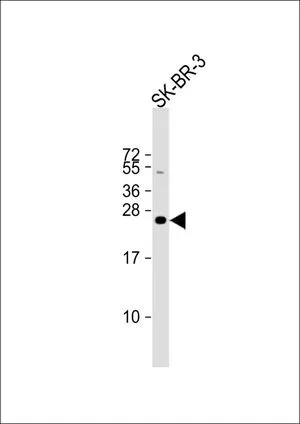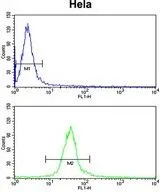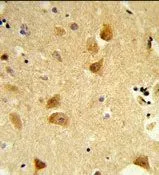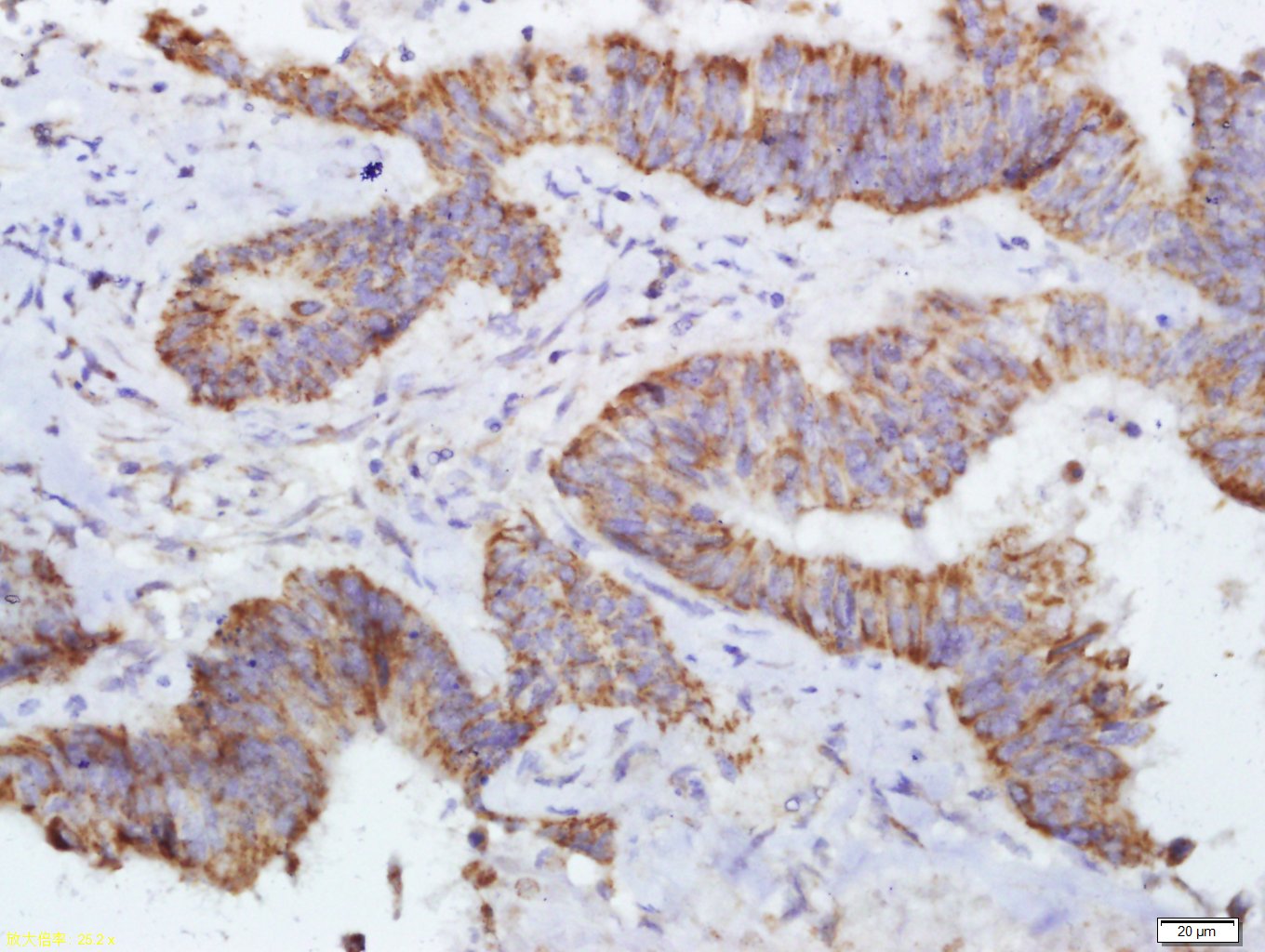
WB analysis of SK-BR-3 whole cell lysate using GTX81054 Derlin 1 antibody, C-term. Loading : 20 microg per lane Dilution : 1:16000
Derlin 1 antibody, C-term
GTX81054
ApplicationsFlow Cytometry, Western Blot, ImmunoHistoChemistry, ImmunoHistoChemistry Paraffin
Product group Antibodies
TargetDERL1
Overview
- SupplierGeneTex
- Product NameDerlin 1 antibody, C-term
- Delivery Days Customer9
- Application Supplier NoteWB: 1:1000. IHC-P: 1:50-1:100. FACS: 1:10-1:50. *Optimal dilutions/concentrations should be determined by the researcher.Not tested in other applications.
- ApplicationsFlow Cytometry, Western Blot, ImmunoHistoChemistry, ImmunoHistoChemistry Paraffin
- CertificationResearch Use Only
- ClonalityPolyclonal
- ConjugateUnconjugated
- Gene ID79139
- Target nameDERL1
- Target descriptionderlin 1
- Target synonymsDER-1, DER1, derlin-1, derlin-1, DERtrin-1, Der1-like domain family, member 1, degradation in endoplasmic reticulum protein 1
- HostRabbit
- IsotypeIgG
- Protein IDQ9BUN8
- Protein NameDerlin-1
- Scientific DescriptionThe protein encoded by this gene is a member of the derlin family. Members of this family participate in the ER-associated degradation response and retrotranslocate misfolded or unfolded proteins from the ER lumen to the cytosol for proteasomal degradation. This protein recognizes substrate in the ER and works in a complex to retrotranslocate it across the ER membrane into the cytosol. This protein may select cystic fibrosis transmembrane conductance regulator protein (CFTR) for degradation as well as unfolded proteins in Alzheimers disease. Alternative splicing results in multiple transcript variants that encode different protein isoforms. [provided by RefSeq, Aug 2012]
- Storage Instruction-20°C or -80°C,2°C to 8°C
- UNSPSC12352203








